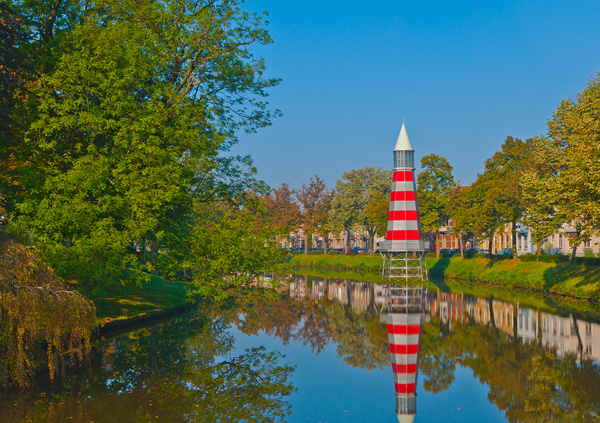Retire in Breda Guide
Summary: If Breda is on your retirement radar, our detailed Retire in Breda Guide is your go-to resource. Delve into the crucial aspects of life here, including living costs, climate, housing options, healthcare services, and residency procedures. We also explore the city's social dynamics, volunteering scenes, transportation, and how walkable its neighborhoods are.

Breda, a charming city in the southern part of the Netherlands, has become a popular retirement destination for international retirees. The city offers a high quality of life, with its rich history, beautiful architecture, and vibrant cultural scene. However, like any other place, retiring in Breda also comes with its own set of challenges. This article will delve into the various aspects of retiring in Breda, from the cost of living and healthcare to the local culture and recreational activities.
Understanding the Cost of Living
The cost of living in Breda is relatively moderate compared to other European cities. Rent for a one-bedroom apartment in the city center is around €800-€1000 per month. Groceries and dining out are also reasonably priced. However, it's important to note that taxes in the Netherlands can be high, which can significantly impact your overall cost of living.
Climate Throughout the Year
Breda experiences a temperate maritime climate, with mild summers and cool winters. The average temperature in summer ranges from 20-25°C, while in winter it can drop to around 0-5°C. Rainfall is evenly distributed throughout the year, so it's a good idea to always have an umbrella handy.
Healthcare Facilities
Breda is home to Amphia Hospital, one of the largest hospitals in the Netherlands, providing high-quality healthcare services. There are also numerous general practitioners and specialists in the city, ensuring that retirees have access to comprehensive medical care.
Public Healthcare System
The Netherlands has an excellent public healthcare system, which is accessible to all residents, including international retirees. However, it's mandatory to have health insurance, which can be obtained from various insurance companies. The cost of health insurance varies depending on your age and health condition.
Residency Options
International retirees can apply for a long-term residence permit in the Netherlands, provided they meet certain requirements, such as having sufficient income and health insurance. It's advisable to consult with an immigration lawyer to understand the process and requirements in detail.
Recreational Activities and Parks
Breda offers a plethora of recreational activities for retirees. The city is home to several beautiful parks, such as Valkenberg Park and Mastbos Forest, perfect for leisurely walks or picnics. The city's rich history is reflected in its numerous museums and historical sites, such as Breda Castle and the Grote Kerk.
Local Cuisine and Restaurants
Breda has a vibrant food scene, with a wide range of restaurants catering to different tastes and budgets. Some popular local spots include Chocolat, a modern French restaurant, and De Colonie, known for its traditional Dutch cuisine. For a more casual dining experience, Stiefkwartierke offers a variety of sandwiches and local beers.
Language Learning Opportunities
While most Dutch people speak English, learning the local language can enhance your retirement experience. Breda University of Applied Sciences offers Dutch language courses for beginners and advanced learners.
Local Culture and Markets
The locals in Breda are known for their friendliness and hospitality. The city hosts a weekly market every Tuesday and Friday, where you can buy fresh produce, flowers, and local delicacies. It's a great opportunity to mingle with locals and immerse yourself in the local culture.
Meeting People and Volunteering
Joining local clubs and organizations is a great way to meet people and make friends. Breda has several volunteer organizations, such as the Red Cross Breda, where retirees can contribute their time and skills.
Housing Options
Most retirees in Breda live in apartments or townhouses in the city center or in the quieter suburbs. The city is well-connected by public transportation, making it easy to get around without a car.
Retiring in Breda offers a unique blend of history, culture, and modern amenities. While it comes with its own set of challenges, the city's charm and high quality of life make it a worthwhile retirement destination.
About the Author
 Joshua Wood, LPC joined Expat Exchange in 2000 and serves as one of its Co-Presidents. He is also one of the Founders of Digital Nomad Exchange. Prior to Expat Exchange, Joshua worked for NBC Cable (MSNBC and CNBC
Primetime). Joshua has a BA from Syracuse and a Master's in Clinical and Counseling Psychology from Fairleigh Dickinson University. Mr. Wood is also a licensed counselor and psychotherapist.
Joshua Wood, LPC joined Expat Exchange in 2000 and serves as one of its Co-Presidents. He is also one of the Founders of Digital Nomad Exchange. Prior to Expat Exchange, Joshua worked for NBC Cable (MSNBC and CNBC
Primetime). Joshua has a BA from Syracuse and a Master's in Clinical and Counseling Psychology from Fairleigh Dickinson University. Mr. Wood is also a licensed counselor and psychotherapist.
Some of Joshua's articles include Pros and Cons of Living in Portugal, 10 Best Places to Live in Ireland and Pros and Cons of Living in Uruguay. Connect with Joshua on LinkedIn.
Additional Information:
- 7 Tips for Living in Breda
- Pros & Cons of Living in Breda
- Tips for Expats Driving in Breda
- Cost of Living in Breda
- Health Care in Breda
- Discover the Best of Breda
- Healthcare & Health Insurance in Netherlands
- Best Places to Live in Netherlands
- Real Estate in Netherlands
- Pros & Cons of Living in Netherlands
- 5 Tips for Tech Jobs in Amsterdam
- Pros and Cons of Living in Netherlands 2025
- 2025 Guide to Moving to Netherlands




